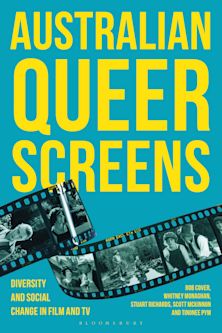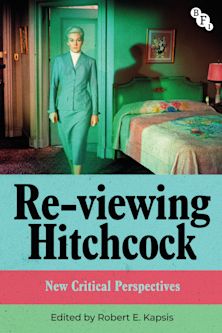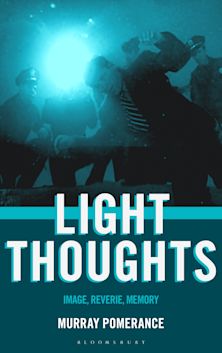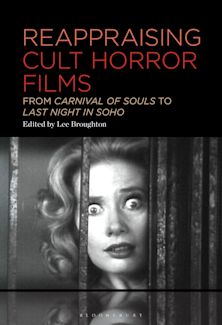Selling Sex on Screen
From Weimar Cinema to Zombie Porn
Selling Sex on Screen
From Weimar Cinema to Zombie Porn
Description
Whether in mainstream or independent films, depictions of female prostitution and promiscuity are complicated by their intersection with male fantasies. In such films, issues of exploitation, fidelity, and profitability are often introduced into the narrative, where sex and power become commodities traded between men and women.
In Selling Sex on Screen: From Weimar Cinema to Zombie Porn, Karen A. Ritzenhoff and Catriona McAvoy have assembled essays that explore the representation of women and sexual transactions in film and television. Included in these discussions are the films Breakfast at Tiffany’s, Eyes Wide Shut, L.A. Confidential, Pandora’s Box, and Shame and such programs as Buffy the Vampire Slayer and Gigolos. By exploring the themes of class differences and female economic independence, the chapters go beyond textual analysis and consider politics, censorship, social trends, laws, race, and technology, as well as sexual and gender stereotypes.
By exploring this complex subject, Selling Sex on Screen offers a spectrum of representations of desire and sexuality through the moving image. This volume will be of interest not only to students and scholars of film but also researchers in gender studies, women’s studies, criminology, sociology, film studies, adaptation studies, and popular culture.
Table of Contents
Preface: Deborah Jermyn
IntroductionKaren A. Ritzenhoff and Catriona McAvoy
Chapter 1: The Sexual Economy and the New Woman: Images of Prostitution in Weimar Cinema
Tom Saunders
Chapter 2: Early representations of female prostitution in Pandora’s Box (1929)
Clémentine Tholas-Disset
Chapter 3: How the Production Code Tapped Out the Mother Lode: Women, Sex, and Busby Berkeley’s Gold Diggers Films
Tiel Lundy
Chapter 4: “Birdie, don’t I get something for my dollar?” The “Tutor-Code” of Sex Trade in the Golden Age of Television Westerns
Gaylyn Studlar
Chapter 5: Economics, Empathy, and Expectation: History and Representation of Rape and Prostitution in Late 1980s Vietnam War Films
Amanda Boczar
Chapter 6: She Wolves: The Monstrous Women of Nazisploitation Cinema
Brian E. Crim
Chapter 7: Delicate Reports: Prostitution in Sergio Martino’s mondo film Wages of Sin (Mille peccati…nessuna virtù, 1969)
Andreas Ehrenreich
Chapter 8: Cha Ching!: Getting Paid in Breakfast at Tiffany’s and Showtime’s Gigolos
Janet Robinson
Chapter 9: Machines, Mirrors, Martyrs, and Money: Prostitutes and Promiscuity in Steve McQueen’s Shame (2011) and Stanley Kubrick’s Eyes Wide Shut (1999)
Catriona McAvoy and Karen A. Ritzenhoff
Chapter 10: “They’re Selling an Image:” “Hookers Cut to Look Like Movie Stars” in L.A. Confidential (1997)
Rochelle Sara Miller
Chapter 11: Selling Sex, along with everything else: “Darla” as Mark(et)ed Woman in Joss Whedon’s Buffy, the Vampire Slayer
Wendy Sterba
Chapter 12: What Happens to the Money Shot? Why Zombie Porn Can’t Get the Audience to Bite
James J. Ward
Index
About the Editors and Contributors
Product details
| Published | Jul 16 2015 |
|---|---|
| Format | Ebook (PDF) |
| Edition | 1st |
| Extent | 282 |
| ISBN | 9798216273301 |
| Imprint | Rowman & Littlefield Publishers |
| Illustrations | 40 BW Photos |
| Publisher | Bloomsbury Publishing |
Reviews

ONLINE RESOURCES
Bloomsbury Collections
This book is available on Bloomsbury Collections where your library has access.



































